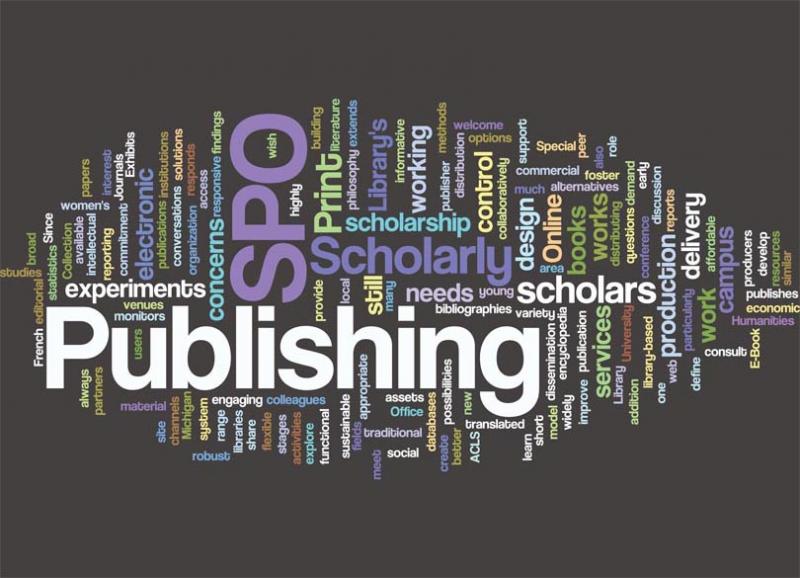 So far, we’ve looked at how to communicate a topic verbally, in front of conference audiences and students. What I’d like to consider in this post is how to begin publishing your research in writing, be it as a book chapter in an edited collection or as an article in a peer-reviewed journal. It’s important to note, however, that the processes which underpin academic publishing depend very heavily on the discipline in which you work as well as on national conventions, so what I discuss here is a set of basic thoughts and tips that may – but can’t always – be applied across a number of disciplines within and adjacent to the arts and humanities in particular (though issues such as dealing with criticism certainly are relevant far beyond these fields). As always, I want to focus on two types of information: the practical, and the personal; and within those areas, I think it might be particularly useful to those new to academia and publishing to think about the following four aspects in turn:
So far, we’ve looked at how to communicate a topic verbally, in front of conference audiences and students. What I’d like to consider in this post is how to begin publishing your research in writing, be it as a book chapter in an edited collection or as an article in a peer-reviewed journal. It’s important to note, however, that the processes which underpin academic publishing depend very heavily on the discipline in which you work as well as on national conventions, so what I discuss here is a set of basic thoughts and tips that may – but can’t always – be applied across a number of disciplines within and adjacent to the arts and humanities in particular (though issues such as dealing with criticism certainly are relevant far beyond these fields). As always, I want to focus on two types of information: the practical, and the personal; and within those areas, I think it might be particularly useful to those new to academia and publishing to think about the following four aspects in turn:
a) Preliminary Thoughts: When, What & Where to Publish
b) Preparing & Submitting Your Manuscript
c) Reviews, Revisions, Resubmission: Dealing with Criticism & Rejection
d) Nearly There: Final Steps & Publication
And by the way, it’s needless to say I’m notoriously bad at heeding my own advice, so what follows is the result of a lot of continuing trial and error!
 PRELIMINARY THOUGHTS: WHEN, WHAT & WHERE TO PUBLISH
PRELIMINARY THOUGHTS: WHEN, WHAT & WHERE TO PUBLISH
When
– Quite simply: once you have work that is worth publishing.
– Don’t submit something just for the sake of wanting to publish.
– Ask your supervisor if any of your work is worth revising for publication.
– Beginning publishing after your Ph.D. can put a lot of pressure on you.
– It’s advisable to have published at least one or two pieces by the end of your Ph.D.
– Remember it can easily take 1 – 2 years from submission until you’ll see your work in print.
What
– Again, consult with your supervisor/ mentor on what might be suitable. Originality is usually key.
– Publishing too much or all of your Ph.D. may put off future publishers of a potential thesis monograph.
– What you submit may also be determined by the theme of a particular call for submissions.
– Be mindful of your schedule. Writing from scratch a piece unrelated to your thesis can take a lot of time.
– If you are invited to contribute to a publication, ask yourself whether you can really honor that commitment.
– You want what you publish to be good work, so don’t squeeze in rushed submissions here and there.
Where
– Journals you use for your research will usually be suitable, as will collections edited by people in your field.
– If you are very anxious about your work and the process, consider submitting to a postgraduate journal.
– Ensure you read up on a journal’s remit and consider whether your work fits with their aims and scope.
– If you are submitting for an edited collection, ensure you know the editors are aiming for a reputable publisher.
– Consult with your supervisor/ mentor over which publishers are not well-regarded in your field.
PREPARING & SUBMITTING YOUR MANUSCRIPT
– Be aware of and follow any guidelines provided.
– Use the journal’s/ publisher’s presentation and referencing style.
– Stick within the specified word count.
– Check other articles in the journal to understand their style and remit.
– Where applicable, ensure you submit by the specified deadline.
– Submit via the method specified (email, online system, post, etc.).
– Ensure you have revised existing work into an independent piece.
REVIEWS, REVISIONS & RESUBMISSION: DEALING WITH CRITICISM & REJECTION
As with conferences, there are several reasons why your manuscript may be rejected for publication, and these can, but don’t always have, to do with the quality of your work. Rejection, like criticism, is commonplace in academia and particularly in academic publishing; sooner or later you will have to learn to deal with it in a rational way.
– The journal may not send your piece out for review because they have a large backlog of submissions.
– Your topic may not fit within the particular direction in which editors want to take the journal.
– Politely ask for feedback (some journals do not provide this for rejected articles).
– Remember you can revise your article and submit it to a different journal. This isn’t the end of the road.
– Even the most established professors have had work rejected – it’s normal!
Reviews, Revisions & Resubmission
– No matter if revisions are minor or major, do them carefully and take your time.
– Sleep over the review and be rational and thankful for it. Don’t get angry!
– If you feel a reviewer’s comments are unnecessarily harsh (or even rude), don’t take it personally.
– It’s not your problem if someone can’t treat a peer review with common courtesy and professionalism.
– Reviewers sometimes have their own agenda.
– Ensure you take all the criticism on board and address it for your resubmission.
– Don’t ignore points with which you disagree – explain to the editor why you disagree!
NEARLY THERE: FINAL STEPS & PUBLICATION
So your manuscript has been accepted for publication and, conscientious and ambitious as you are, you have addressed the changes requested by the editors or peer reviewers – well done! But the process if far from over, and here are a couple of things to consider and remember before you finally see your hard work in print (on screen or on the page):
– You will normally receive proofs of your work. Follow the guidelines carefully and proofread carefully!
– Even if the version you submitted was flawless, errors can creep in during typesetting and copyediting.
– Make sure your contact details (e-mail address) are valid and don’t expire soon.
– For biographical notes, ask yourself who will read the book and what you want them to know about you.
– Sign and send any copyright agreements promptly – you are delaying publication if you forget about this.
– Be clear about the content of copyright agreements and contracts.
– Can you publish pre-publication versions on your website, for example?
– Be clear in your CV at what stage a publication currently is (forthcoming, in press, etc.).
 Finally, it never ceases to be rewarding and exciting when you see your work in print. Believe it or not, no matter how many times you proofread and check, there may well be a typo in there somewhere. Don’t obsess over this (unless somehow a major factual error has crept in) – your colleagues will understand, because the same happens to them! Be proud of what you’ve achieved and give yourself some credit, no matter if a year later you think the piece is not as good as it could be. Tip: it never is, and never will be! In our heads, our work looks usually a lot different from what eventually ends up on the page – that’s fine, and natural.
Finally, it never ceases to be rewarding and exciting when you see your work in print. Believe it or not, no matter how many times you proofread and check, there may well be a typo in there somewhere. Don’t obsess over this (unless somehow a major factual error has crept in) – your colleagues will understand, because the same happens to them! Be proud of what you’ve achieved and give yourself some credit, no matter if a year later you think the piece is not as good as it could be. Tip: it never is, and never will be! In our heads, our work looks usually a lot different from what eventually ends up on the page – that’s fine, and natural.

All very pertinent to academic publishing – does anyone have any input on trade publishing? V topical with UEA’s ‘Thoughtout’ project ongoing. It would have been lovely to have published by the end of my PhD but I have a suspicion that only the elite and very on-the-ball manage to achieve this – when you’re not sure where your career is going to go, you’re perhaps less focussed on the academic milestones. Besides which – and I know it’s a common whinge and probably justifiably pooh-poohed by those elite and on-the-ball students – there never seems to be time for it!